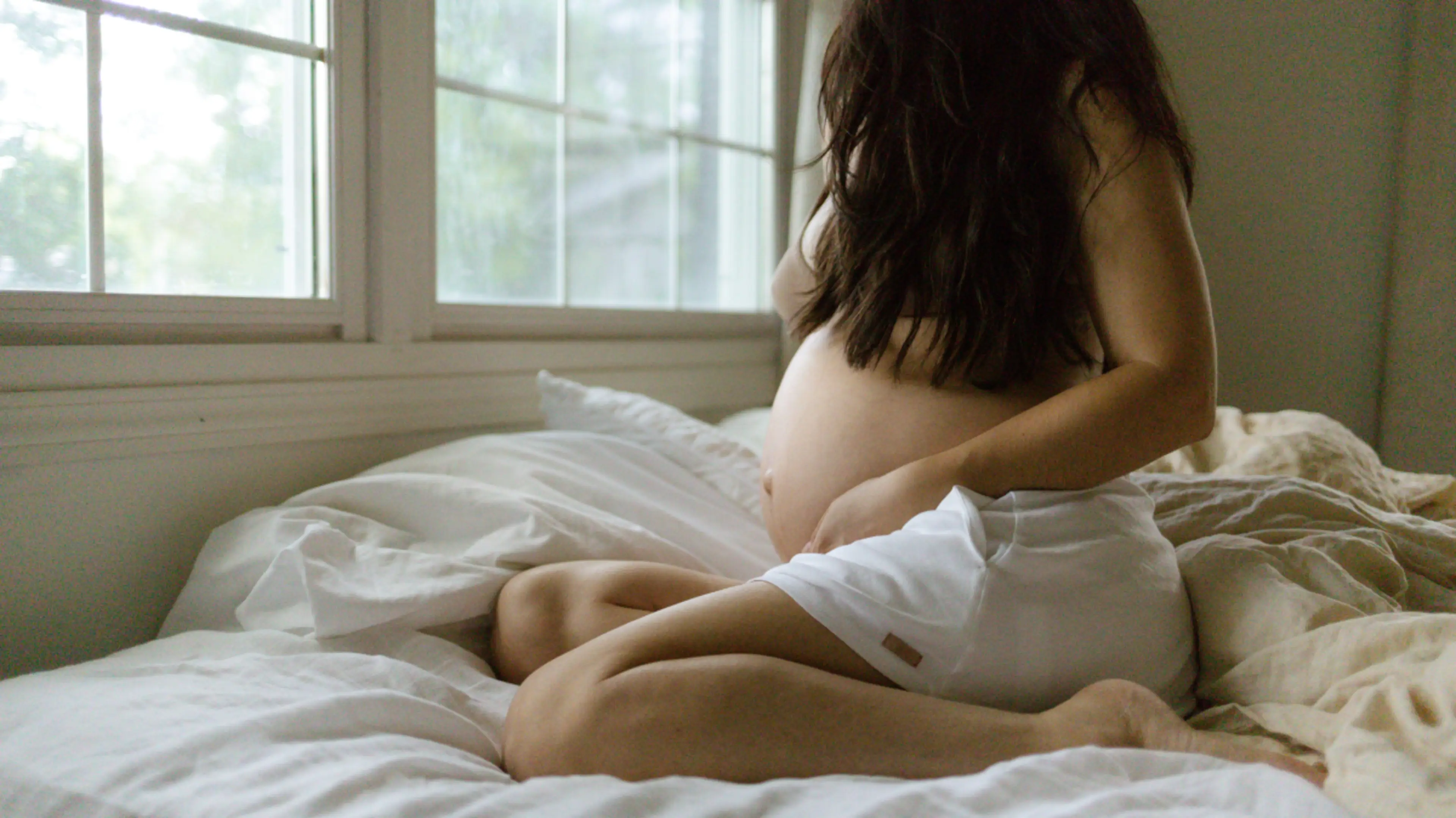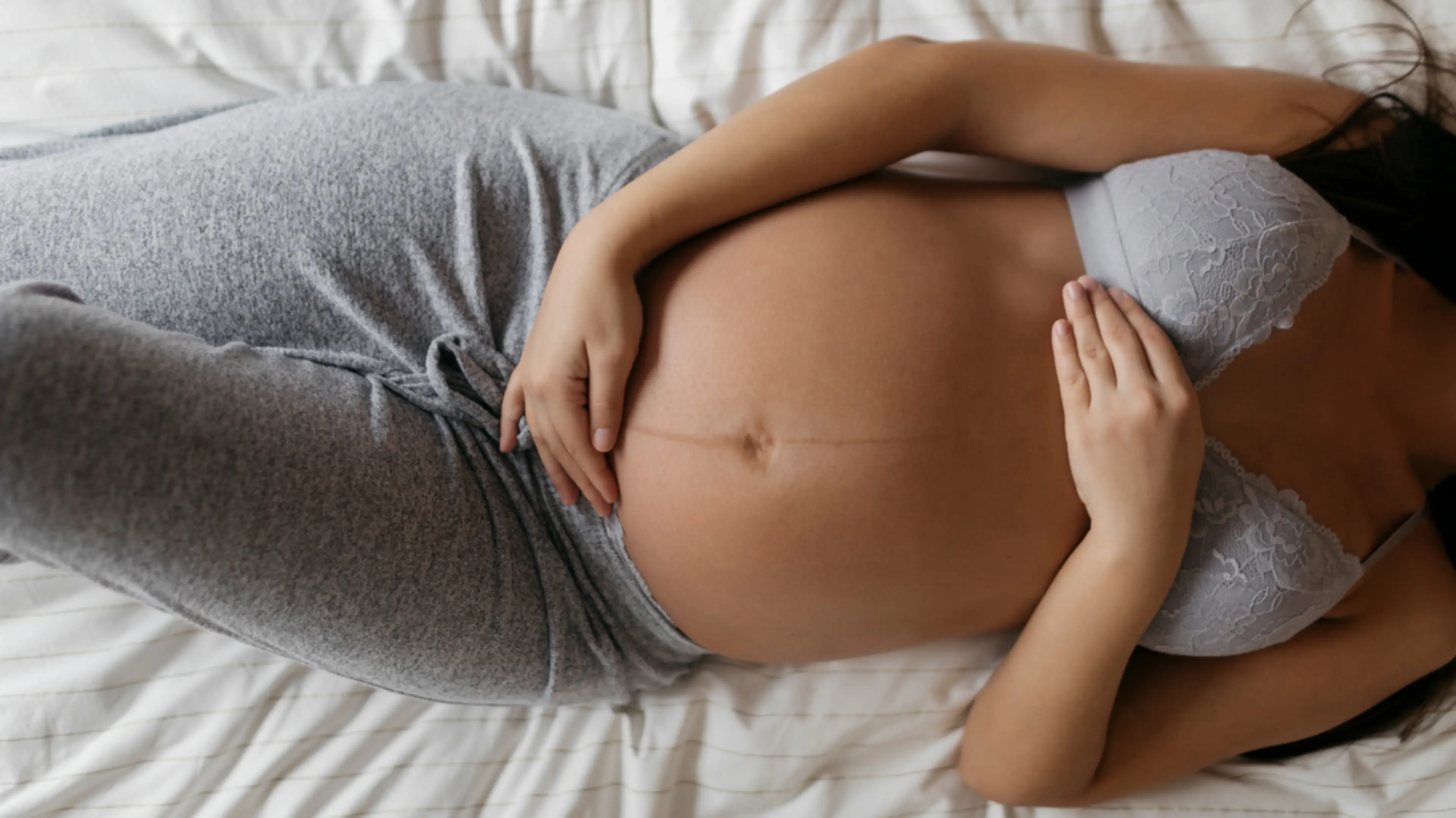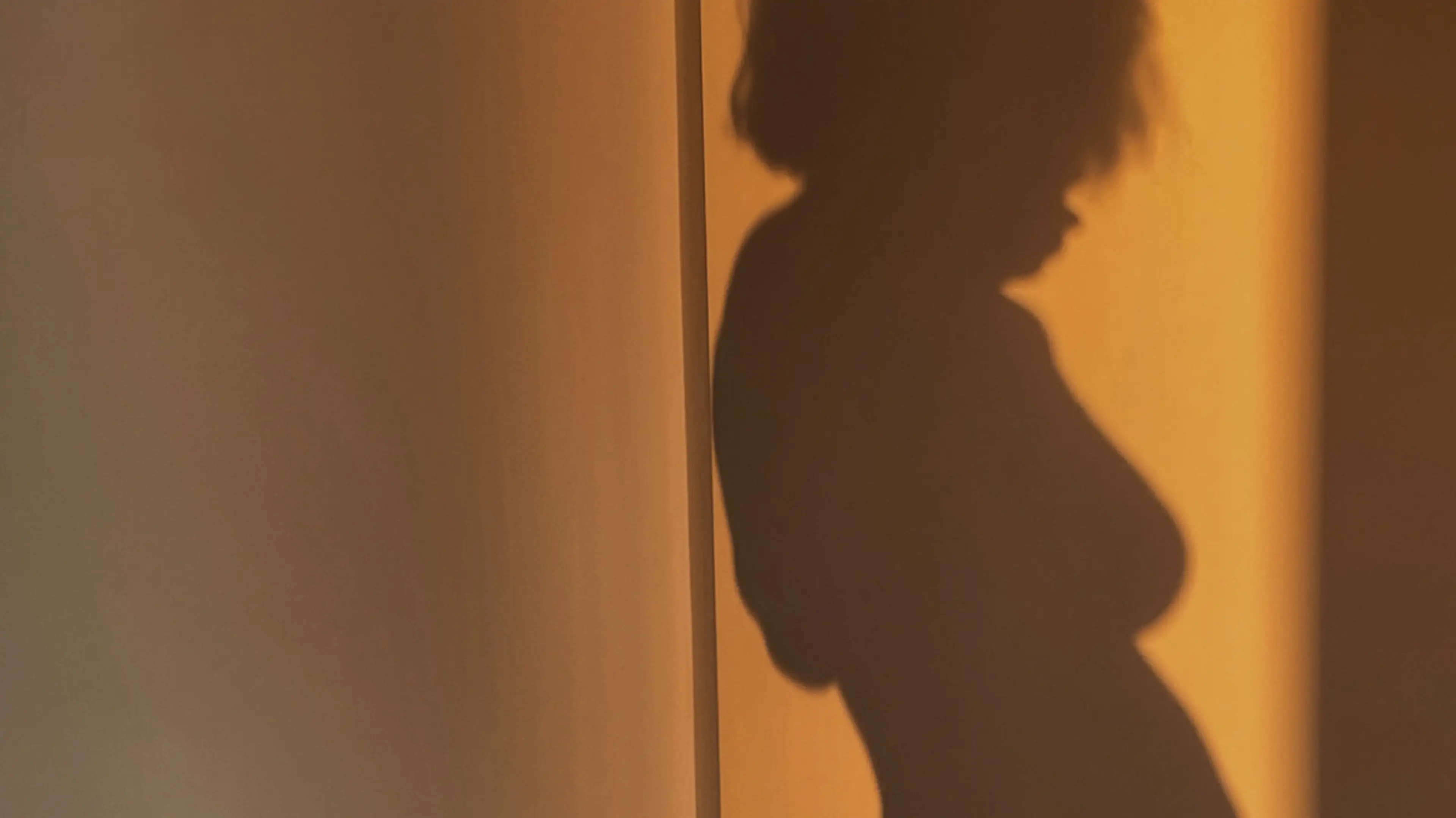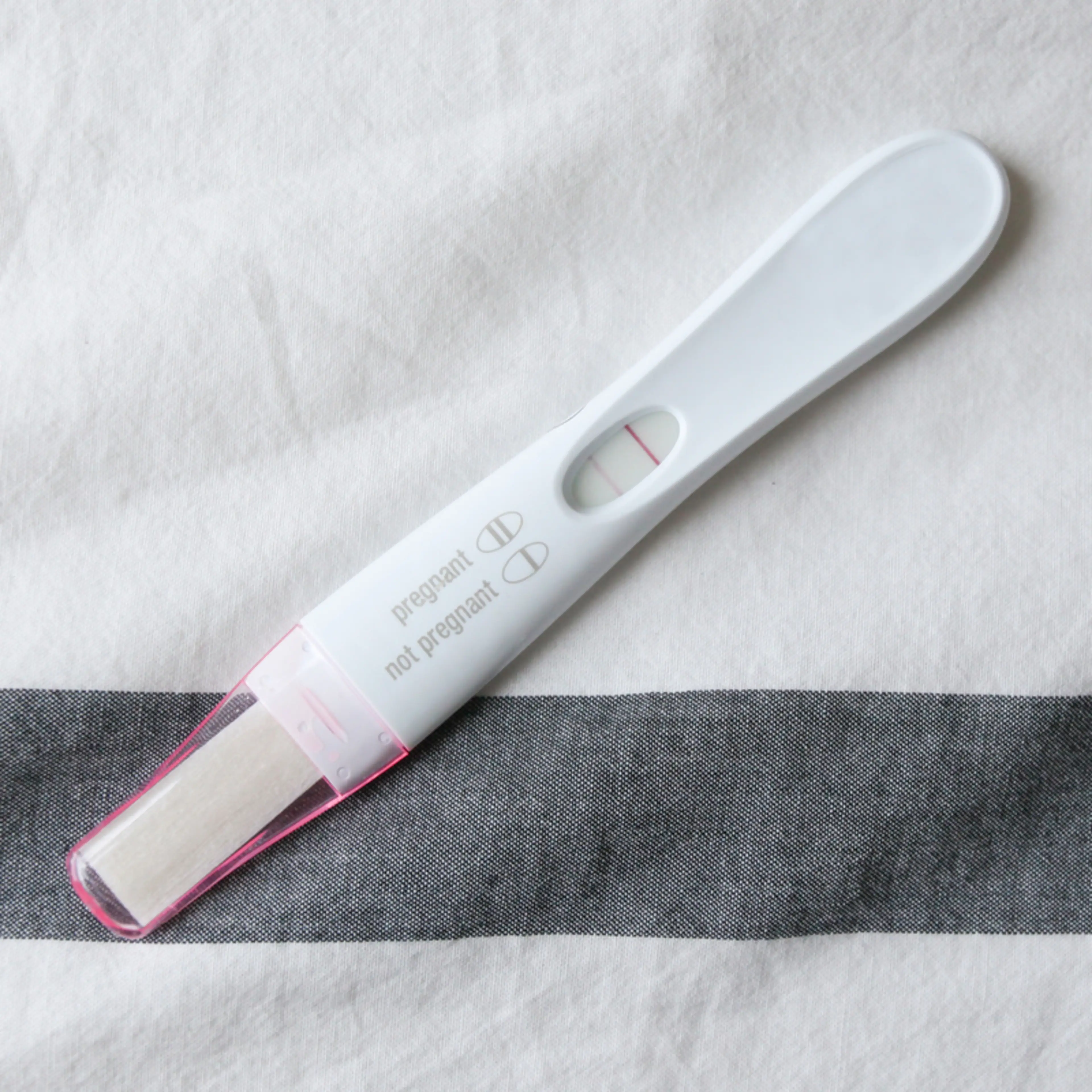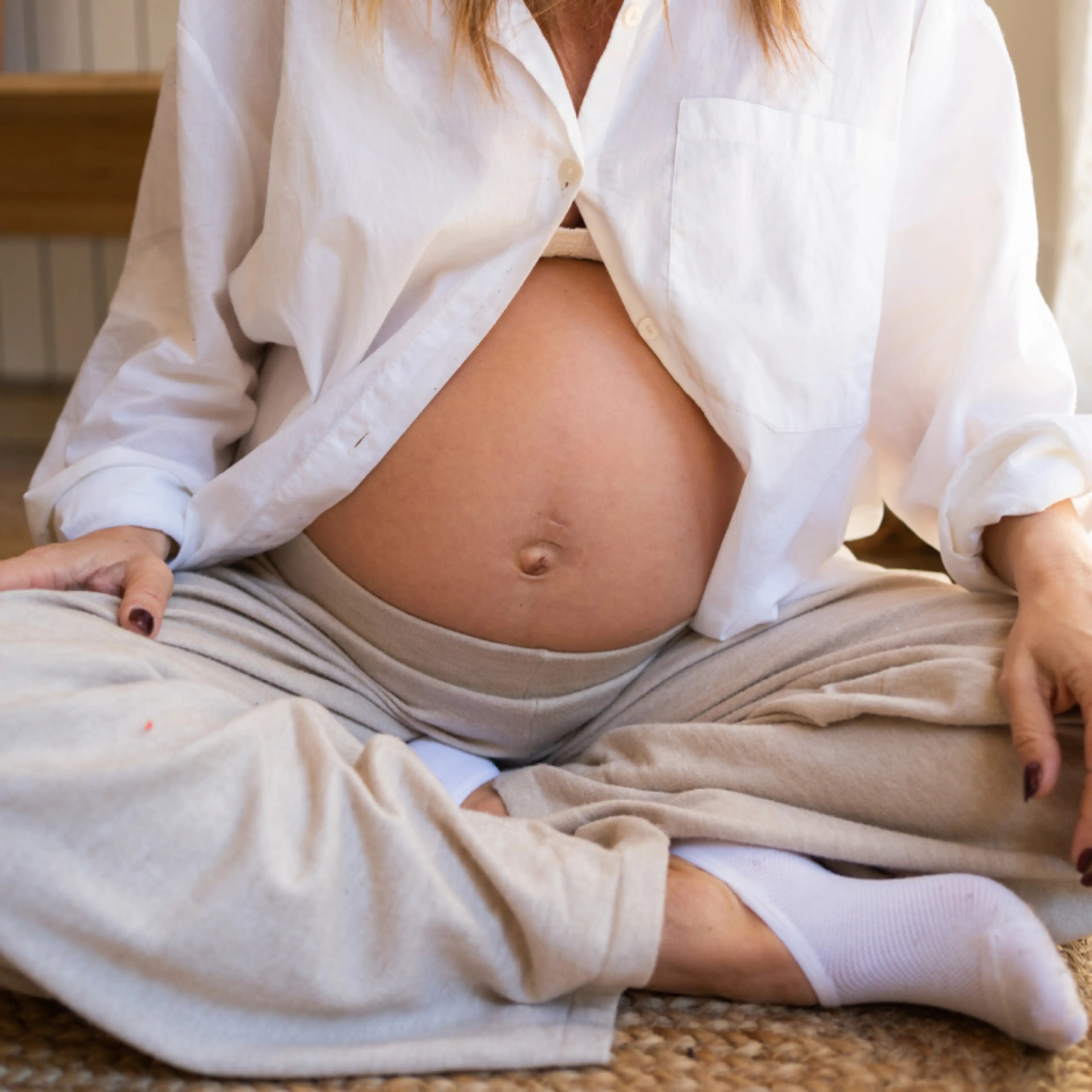When you’re trying to conceive, everything seems like a sign that you could be pregnant. Feeling a little nauseated, gaining a little weight, or maybe you saw a cloud that really looks like a baby? This could be it, you think. To make matters more complicated, many of the signs of early pregnancy are also symptoms of PMS (well, maybe not the clouds).
So which is it, PMS or pregnancy? The differences in symptoms are subtle, and they often come with the big and frustrating caveat of “it depends.” Here’s a cheat sheet to the symptoms that may help you figure out whether you’re experiencing PMS or pregnancy. One good rule of thumb is to be on the lookout for symptoms that are new or different from what you usually experience when you get your period—these could more strongly indicate a pregnancy rather than your monthly cycle.
Missing Your Period (It Depends)
“The main difference between PMS and pregnancy is with pregnancy your period won’t occur,” says Dr. Monte Swarup, an ob-gyn. It may seem obvious that a missed period is a likely sign that you may in fact be pregnant, especially if you have a clockwork cycle. In that scenario, you should definitely take a pregnancy test as soon as you realize you’re late. (Remember: Your doctor’s office likely won’t perform the test until the day you miss your period, which is also when at-home tests are most accurate.)
However, Dr. Swarup also lists a missed period as a symptom people commonly misinterpret. If your period is irregular, you might not think anything of being a couple of days late or even missing a month. A missed period could also be the result of stress, strenuous exercise, birth control pills, or many other things. Still, if you are over a week late, particularly if you are experiencing other symptoms and/or could potentially be pregnant, it’s probably a good idea to take a pregnancy test.
Nausea and/or Vomiting (Pregnancy Sign)
Nausea is how all the women in movies know they’re pregnant, so it must be a good sign, right? While nausea is a more common indicator of pregnancy than PMS, most people don’t experience pregnancy-related nausea before they hit week six1 —that is, two weeks after your missed period. So, if you are vomiting before then, maybe check the expiration date on your dinner before taking a pregnancy test.
That said, nausea can show up earlier in some people, so if you’re experiencing other symptoms, it could be pregnancy. (Note that nausea specifically in the mornings is not necessarily an indicator of pregnancy—”morning sickness” can strike at any time of day.)
Relatedly, while food cravings are common for both PMS and early pregnancy (though they are often more intense in pregnancy), food aversions are a more common indicator of early pregnancy. So, if you suddenly feel turned off by some of your favorite foods in the fridge, that could be telling you something.
Note that if you’re feeling very nauseated immediately following a fertility treatment like an embryo transfer for IVF, contact your doctor ASAP as it could be a sign of a complication.
Breast Tenderness (Both)
According to the American Pregnancy Association, more sensitive or changing breasts is the third most common indicator of pregnancy2 . Your breasts might feel sore, more sensitive, or fuller. These changes can appear 1-2 weeks after conception, making it one of the earliest signs of pregnancy.
But maybe don’t start celebrating quite yet. Breast tenderness is caused by fluctuating hormones—which also occurs during PMS. So if you don’t normally experience breast tenderness or if the soreness feels different, then yes, this could be a sign of pregnancy. Otherwise it’s tough to tell what message your body is trying to send to you.
Light Bleeding (Pregnancy Sign)
When you’re pregnant, you aren’t supposed to bleed, right?
It turns out, a small amount of bleeding is not unusual. When an embryo implants in the uterus—about 10 to 14 days after conception3 —it can cause light cramping and spotting. “One of the most common symptoms that can be mistaken for not being pregnant is implantation bleeding,” says Shandra Scruggs, a former labor and delivery nurse and doula. “The bleeding is usually much lighter and shorter than a regular period, which is why some women mistake it for a light period or believe it means they're not pregnant. The timing creates more confusion because it usually happens around the time when a woman might expect her period.”
So, the key differentiators here are amount and duration. Spotting from embryo implantation would be very light—not enough to fill a tampon or pad—and will only last a day or two. PMS is not generally associated with bleeding until you get your actual period.
Cramping (It Depends)
If you thought pregnancy meant no more cramps, I have good news and bad news. As with bleeding, some light cramping is not unusual during the early stages of pregnancy. However, it will likely be less intense than the cramping associated with PMS, and you will feel it in your lower stomach or back. If your cramps are moderate to severe, you’re probably about to start your period.
Note that if you know you are pregnant and you are cramping, you should rest and take it easy, particularly if you have miscarried in the past. If your cramps are accompanied by bright red bleeding, call your doctor.
Fatigue (Both)
Growing another human is exhausting—but so is emptying out your uterine lining. Unfortunately, feeling tired is pretty common during PMS and early pregnancy, so the only way you’d be able to tell if you’re experiencing one or the other is if your period starts and the fatigue goes away. If the feeling persists and your period is late, it might be time to take a pregnancy test. (And if you are pregnant, don’t worry—fatigue usually resolves by the second trimester.)
Peeing More Often (Pregnancy Sign)
You might have thought increased bathroom visits wouldn’t show up until the third trimester when your baby uses your bladder for a pillow, but it’s actually an early sign of pregnancy, too. Your blood volume can double4 over the course of pregnancy, so your kidneys (which filter blood) start working overtime as soon as a few weeks after conception to process the extra fluid. Furthermore, the hormones triggered by pregnancy—an increase in hCG and progesterone—increase blood flow to the pelvis, which, again, means more blood to filter.
While increased urination can also happen during your period, as elevated progesterone makes you retain water, it’s more commonly associated with early pregnancy.
Moodiness (Both)
Sorry—mood changes show up pretty identically in early pregnancy and during PMS. While this is a symptom of both, it’s not an indicator of one or the other, although some people say the moodiness is more intense during pregnancy.
Note that in either case, if your emotions make you feel numb or depressed, it’s worth talking to a doctor.
Bloating and Constipation (Both)
Already feeling like you have a baby bump? This is another symptom common to both pregnancy and PMS, but not a sure indicator of either. Blame progesterone, which increases in both early pregnancy and during your period, for slowing down your digestion and causing you to retain water.
Headaches and Dizziness (It Depends)
Whether due to hormones or increased blood flow, headaches are common in both PMS and early pregnancy. However, dizziness is unique to early pregnancy. That said, Dr. David Caiseda, ob-gyn with UM Charles Regional Medical Group, advises watching for “severe abdominal pain and shoulder pain plus feeling weak, dizzy, light headed and fainting, as these could be signs of an ectopic pregnancy.
Darkened Nipples (Pregnancy Sign)
It might not be your imagination—your nipples really do get larger and darker during pregnancy, and this can show up as early as a week or two after conception due to spiking estrogen and progesterone. Since this is not something that happens during PMS, darker nipples are definitely a sign to bust out the pregnancy test.
The Biggest Sign: Knowing Your Own Body
If you’re feeling overwhelmed by the number of symptoms to sort through, don’t worry. This list represents the most common possibilities—it’s extremely unlikely you will experience all of these symptoms, and you may not experience any of them, especially early on.
“Know your body,” says Scruggs. “If you're familiar with how your body reacts to PMS, any unusual or severe changes could be a sign of pregnancy. Also, consider timing. If your symptoms show up significantly earlier than your expected period, it might be a pregnancy indicator.”
While it can be hard to tell if what you’re experiencing is regular PMS or a brand new pregnancy, the best advice is to listen to your body and watch for signs that are new or different. They could mean that you have exciting news ahead of you!



